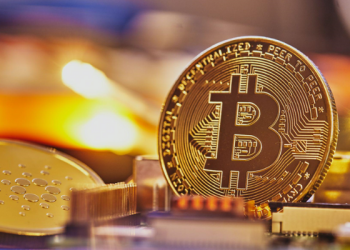The Naira demonstrates stability within the cryptocurrency market, trading between the N1120-N1150 range against the dollar on Binance. This resilience comes despite Binance, the world’s largest crypto exchange by trading volume, agreeing to a $4.3 billion settlement with U.S. authorities.*
*Binance faced criminal charges related to breaking money-transmitting and sanctions laws, resulting in one of the largest penalties ever imposed by the U.S. Founder Changpeng “CZ” Zhao entered a guilty plea, relinquishing his position and agreeing to pay a $50 million fine. The CEO role will now be assumed by Richard Teng, a former Abu Dhabi regulator who led Binance’s regional markets.*
In a court filing, Binance was charged with operating an unlicensed money-transmitting business, failing to maintain an appropriate anti-money laundering program, and violating sanctions laws. Despite Nigeria’s Securities Exchange Commission ordering Binance to cease operations in the country, the platform continues to dominate the peer-to-peer market in Africa’s largest economy.*
*Nigeria remains a major cryptocurrency market, with residents undeterred by regulatory challenges. The Central Bank of Nigeria’s (CBN) 2021 directive prohibiting banks and financial organizations from engaging in crypto trading or transactions hasn’t dampened the enthusiasm.*
*The Federal Government has introduced changes to the country’s revenue drive through the 2023 Finance Act, including a 10% capital gains tax on profits from digital asset disposal starting May 1, 2023. This move raises questions, especially as many global cryptocurrency exchanges used by Nigerians are not registered in the country.*
Despite regulatory ambiguity, Nigeria’s crypto transactions between July 2022 and June 2023 reached an impressive $56.7 billion. The nation’s fondness for the crypto market stems from persistent economic challenges, including high unemployment rates and bureaucratic hurdles in official fund transfers.*
Bitcoin and stablecoins, whose value is tied to stable assets, gained popularity in Nigeria due to inflation and limited access to traditional financing. Chainalysis reports a surge in interest following President Bola Tinubu’s reforms, including eliminating exchange rate restrictions and a gasoline subsidy.*
Stablecoins, particularly tethered to the U.S. dollar, have become a go-to option for many Nigerians seeking to shield themselves from the Naira’s devaluation. The advantages of digital assets, including reduced volatility, low transaction costs, and increased security, contribute to their growing appeal in Nigeria’s dynamic financial landscape.*









